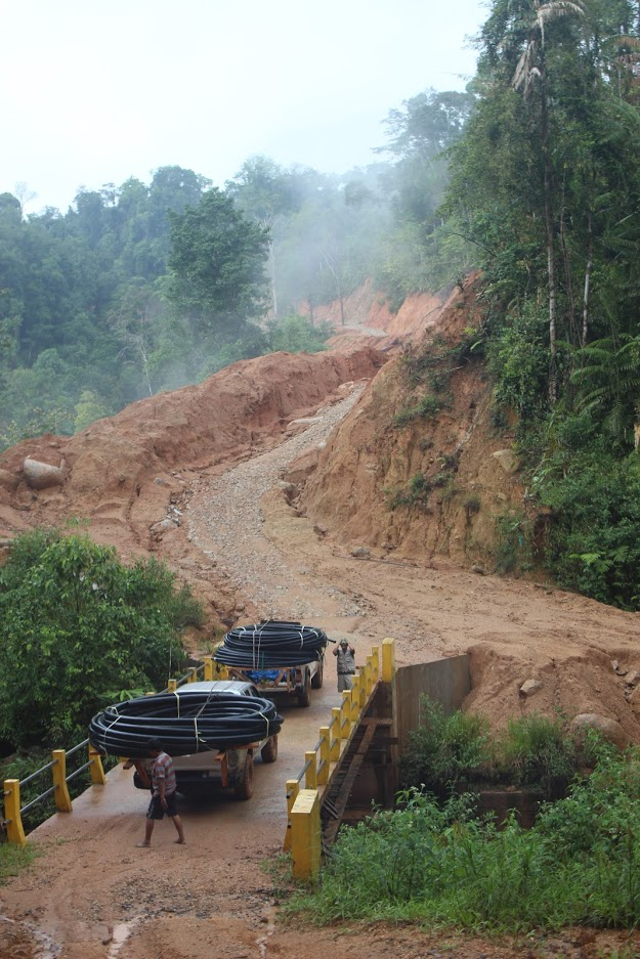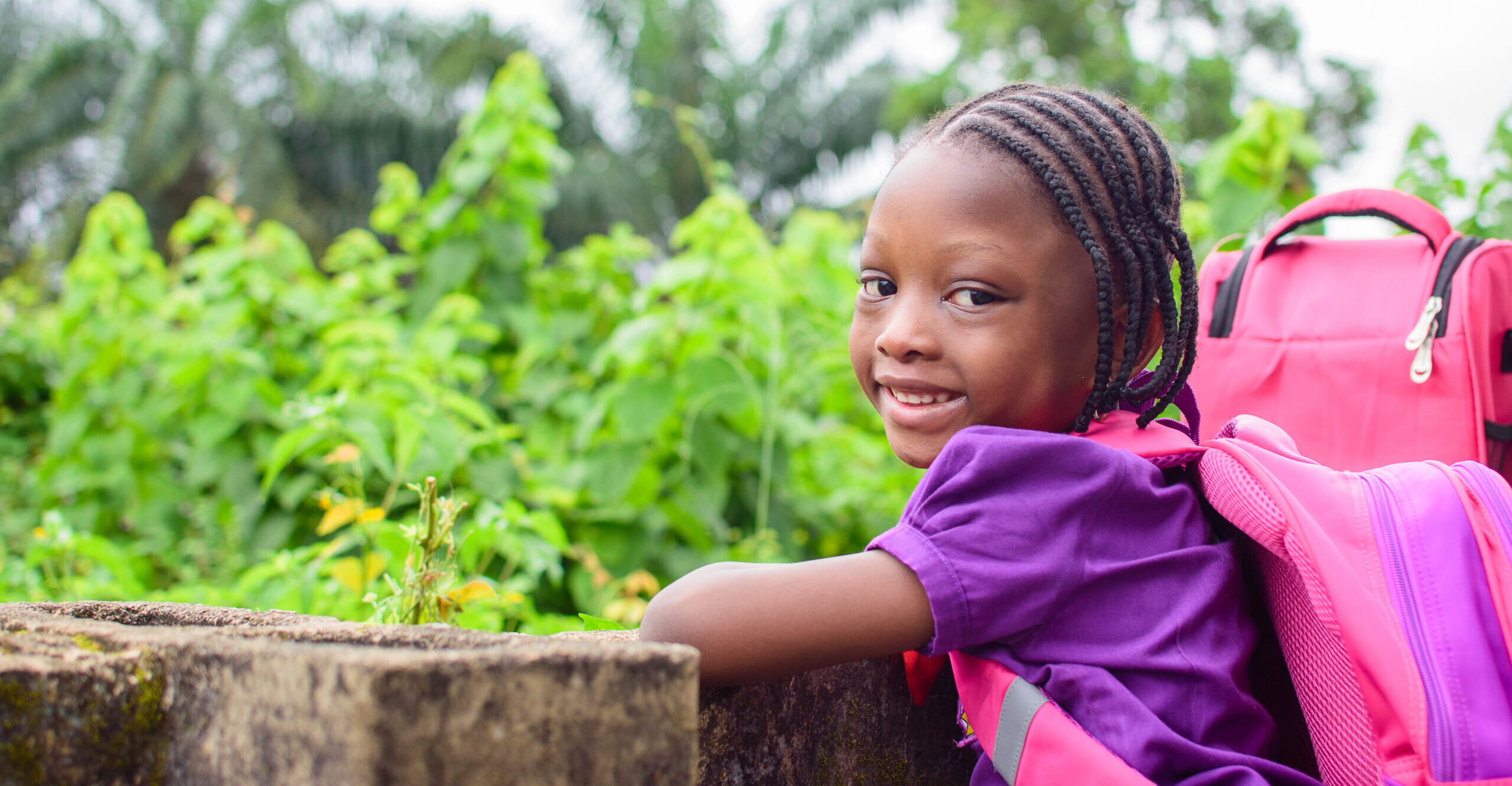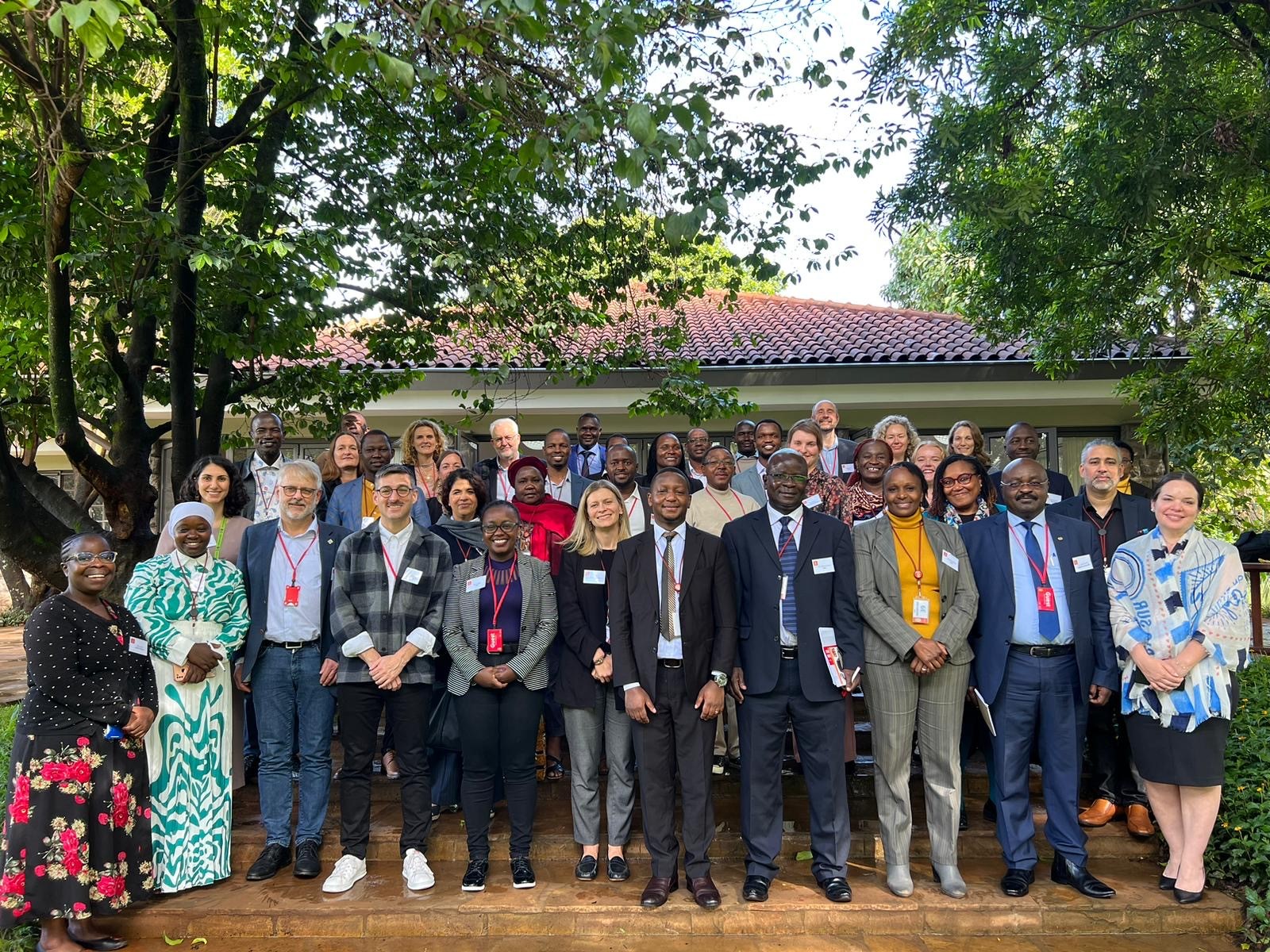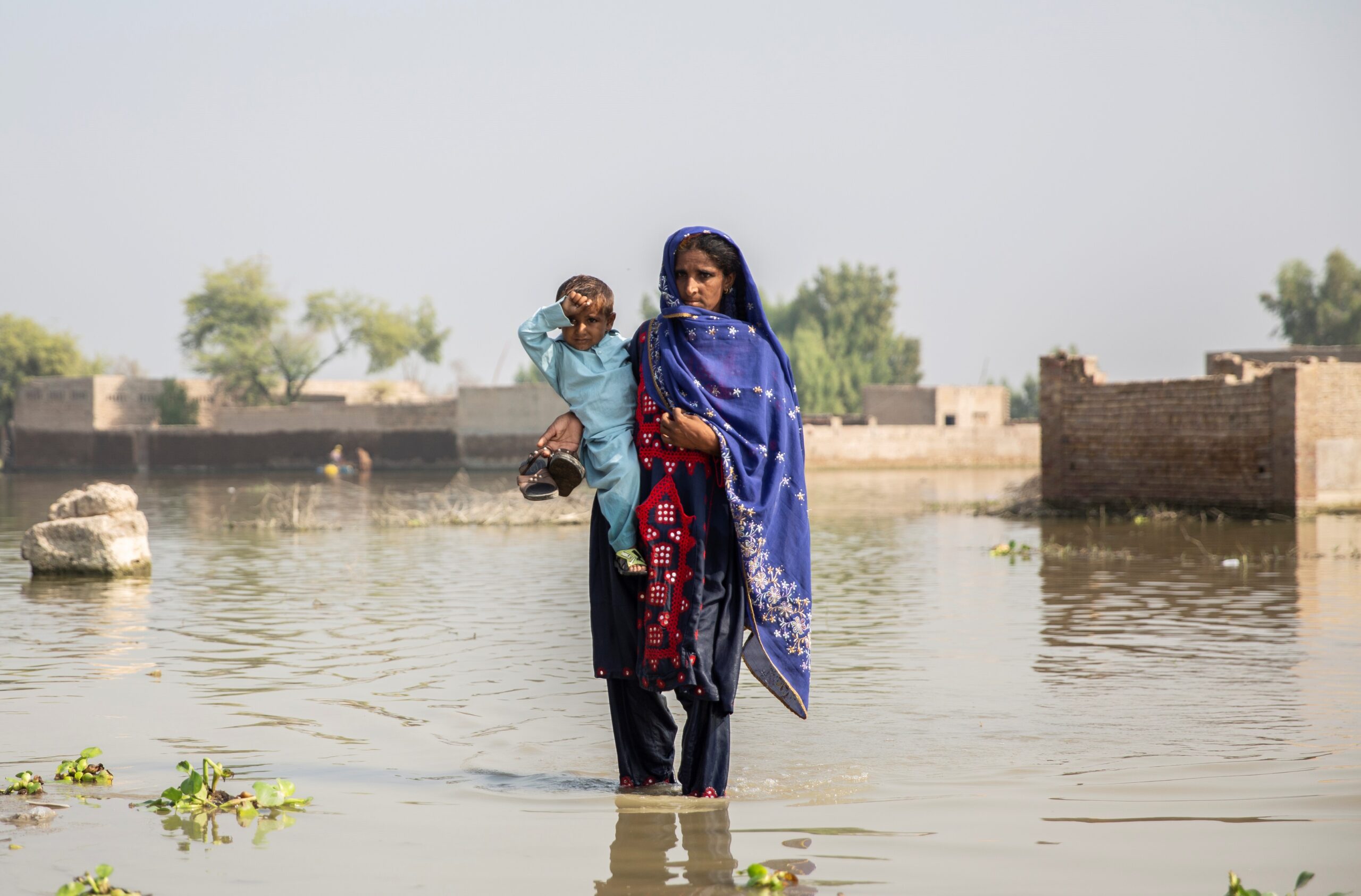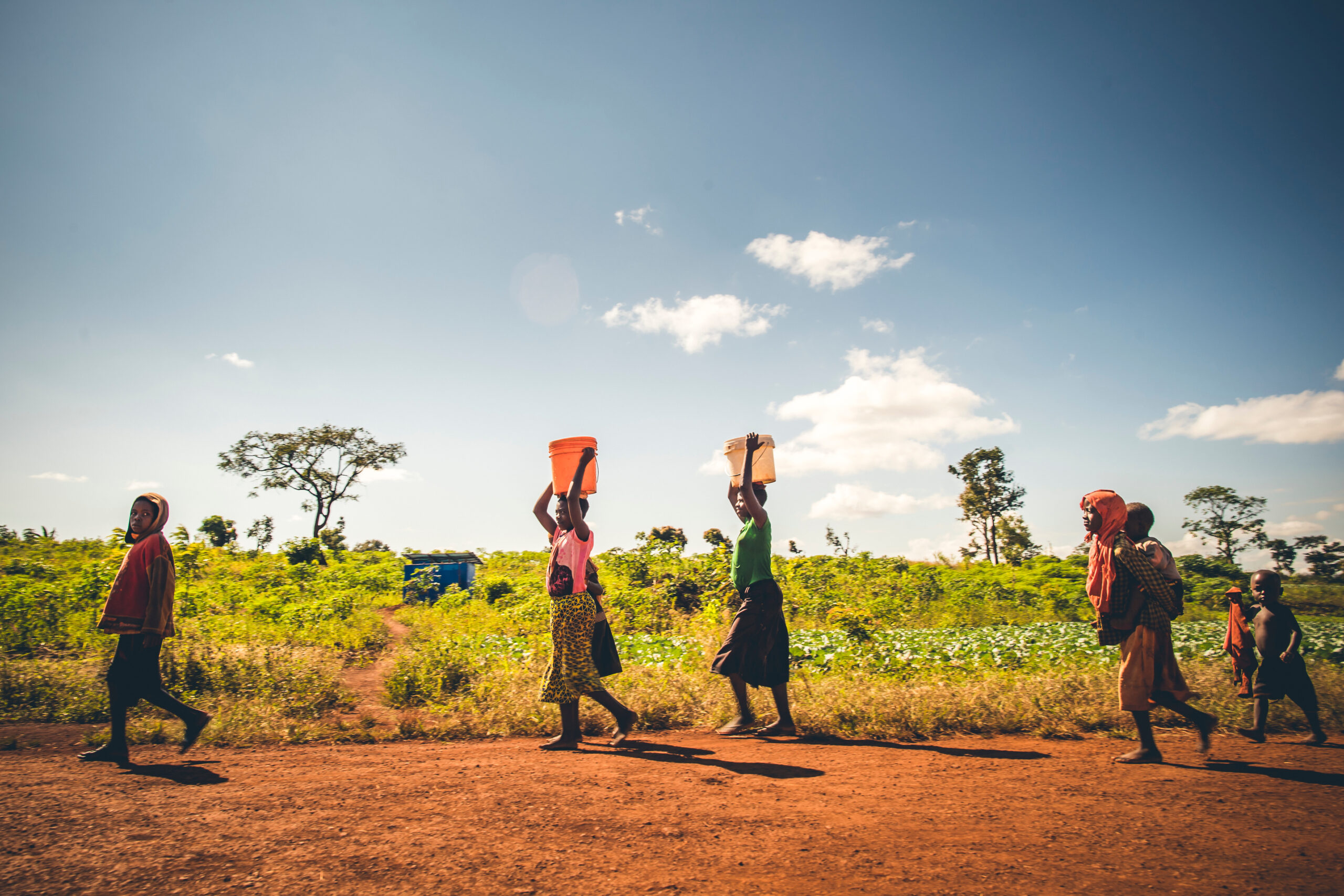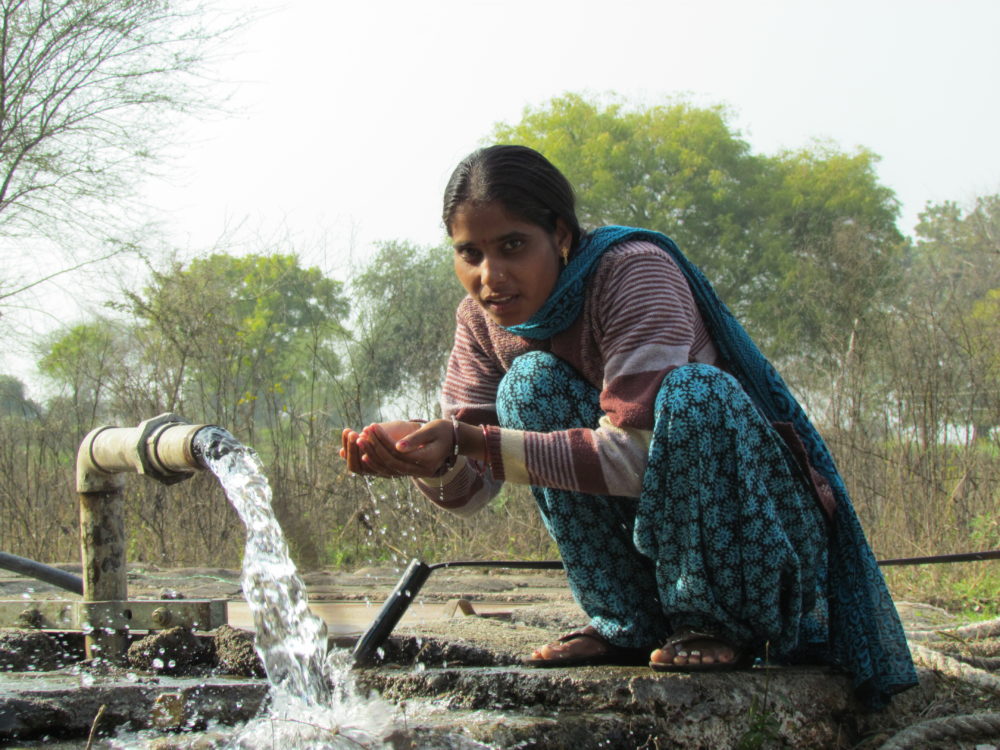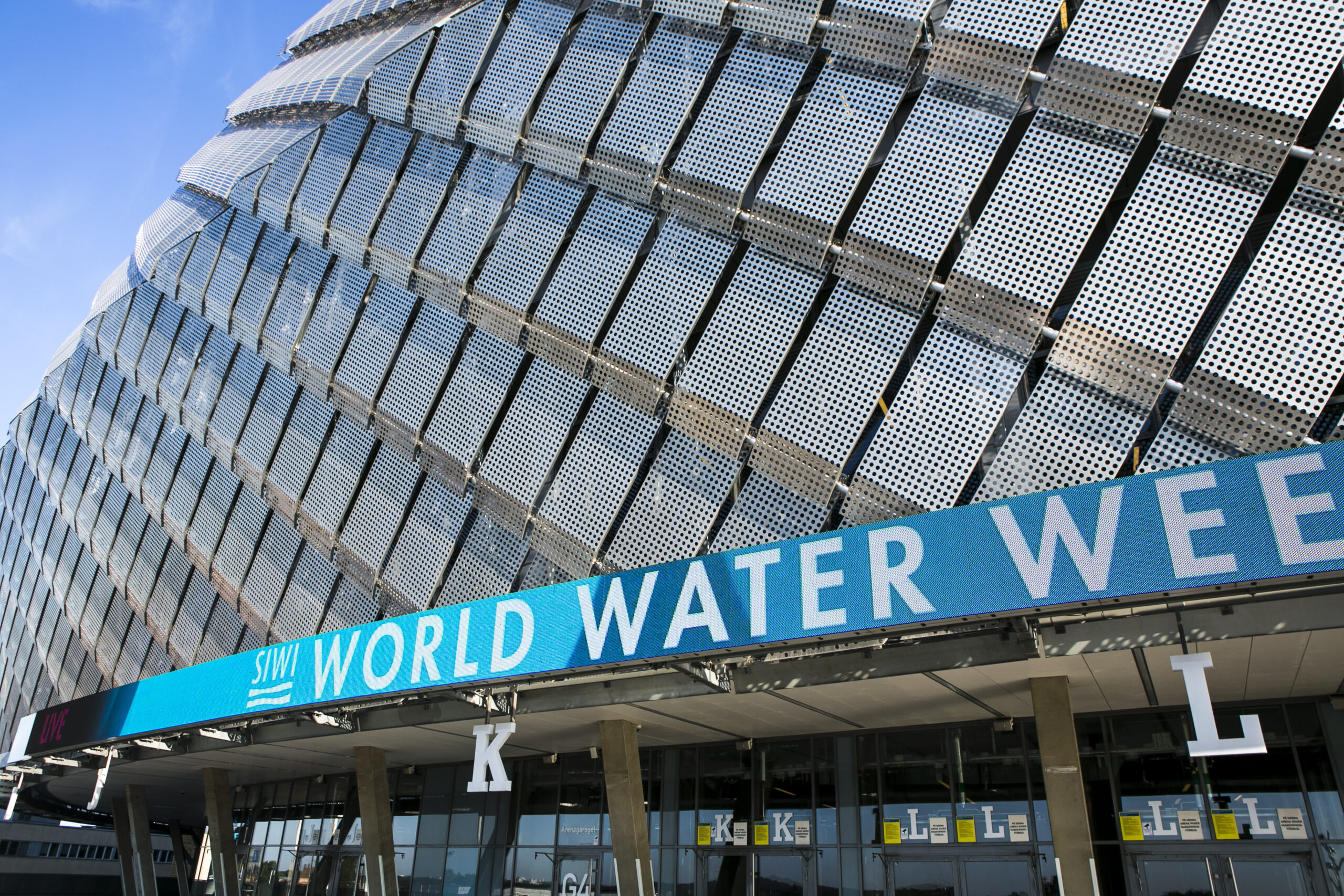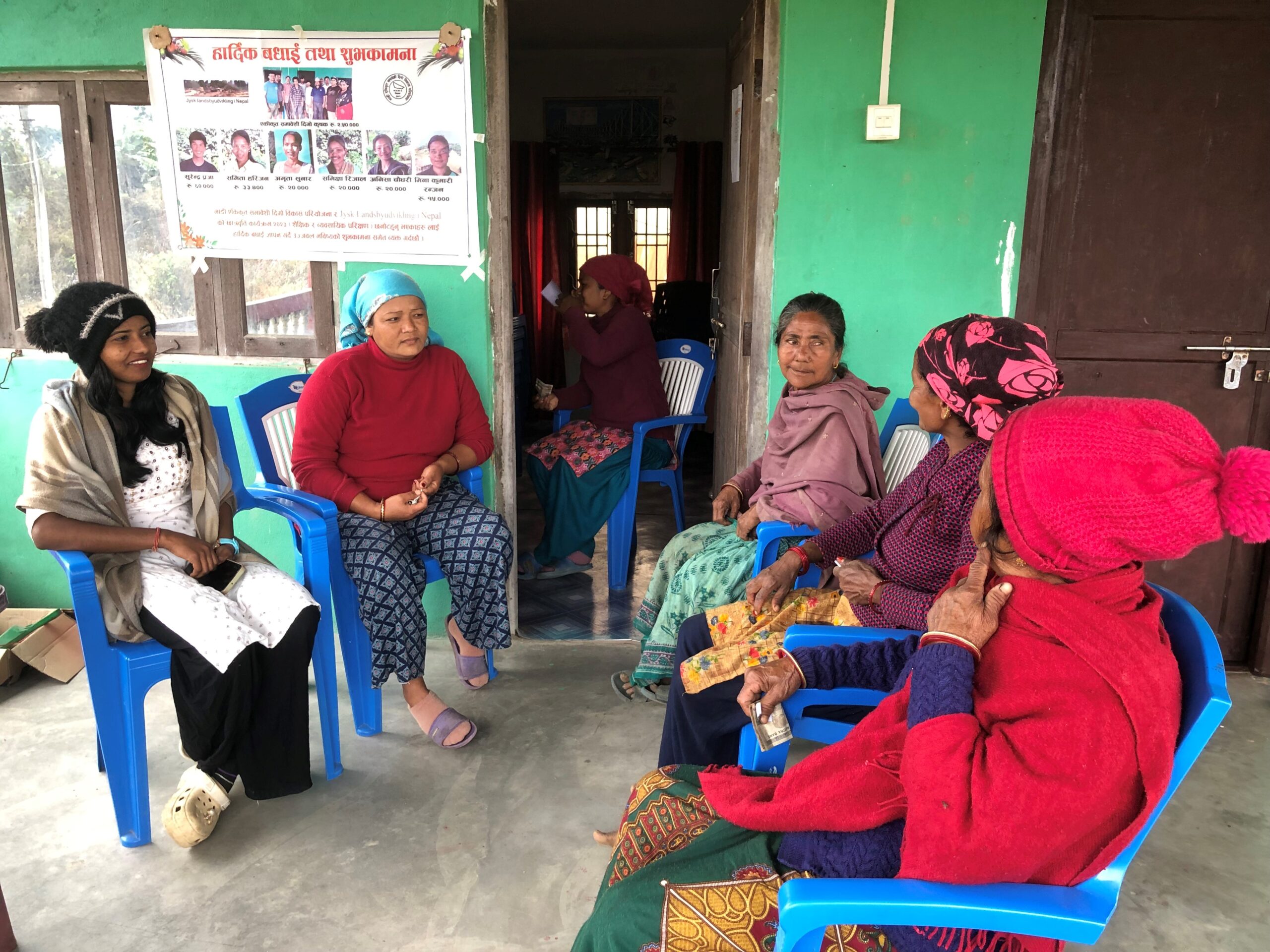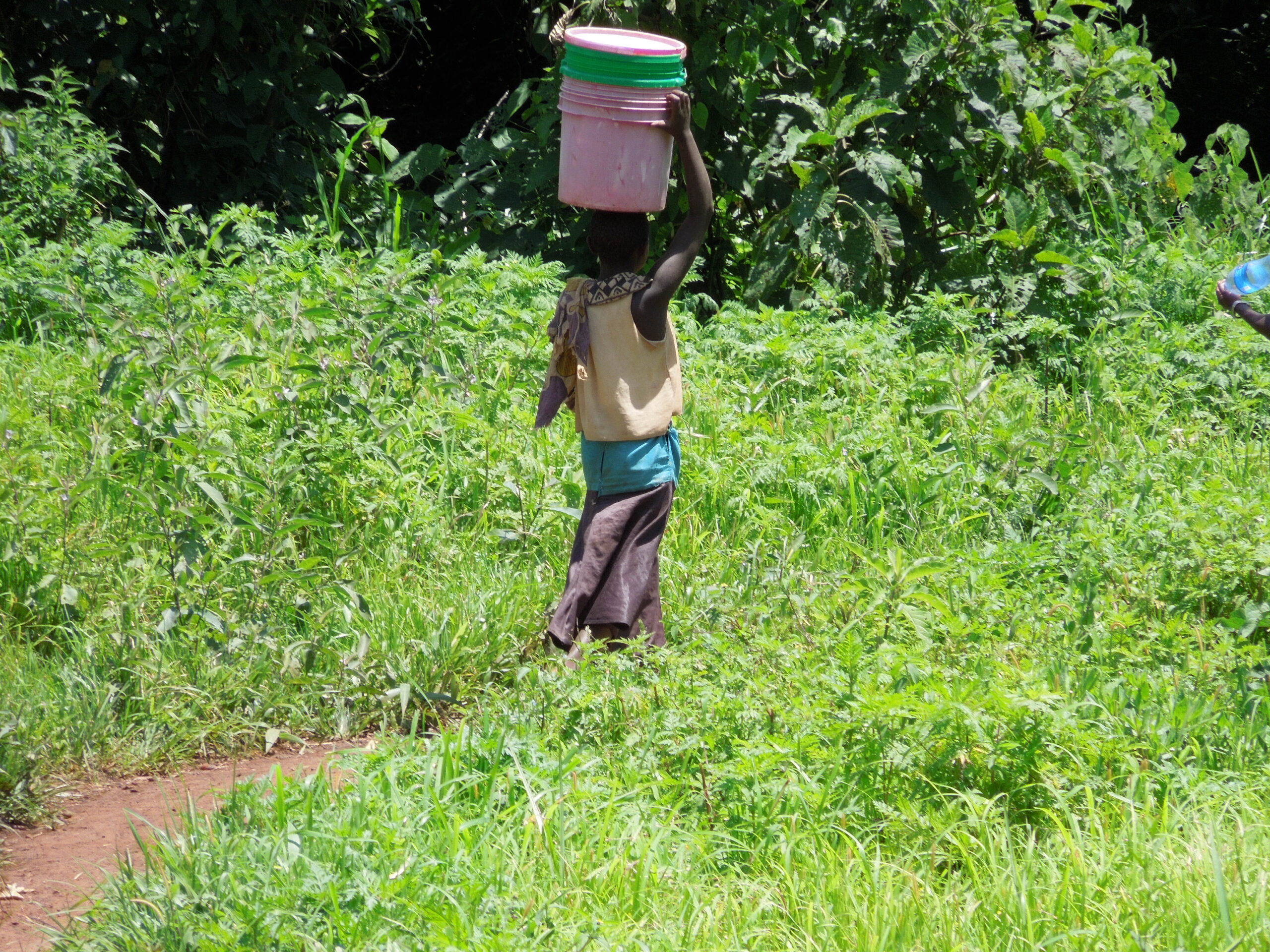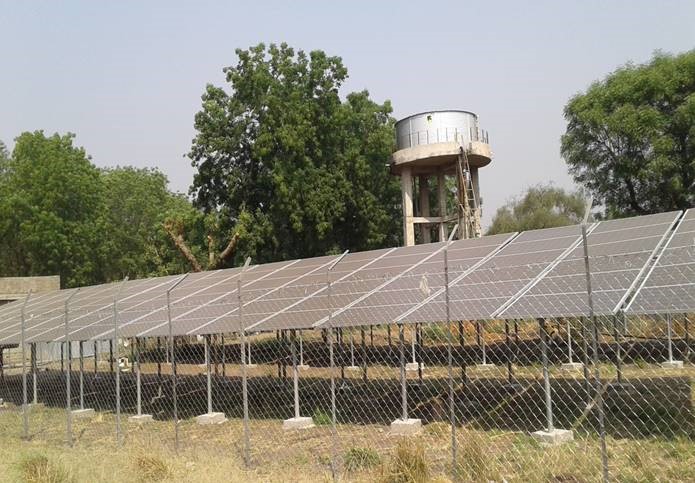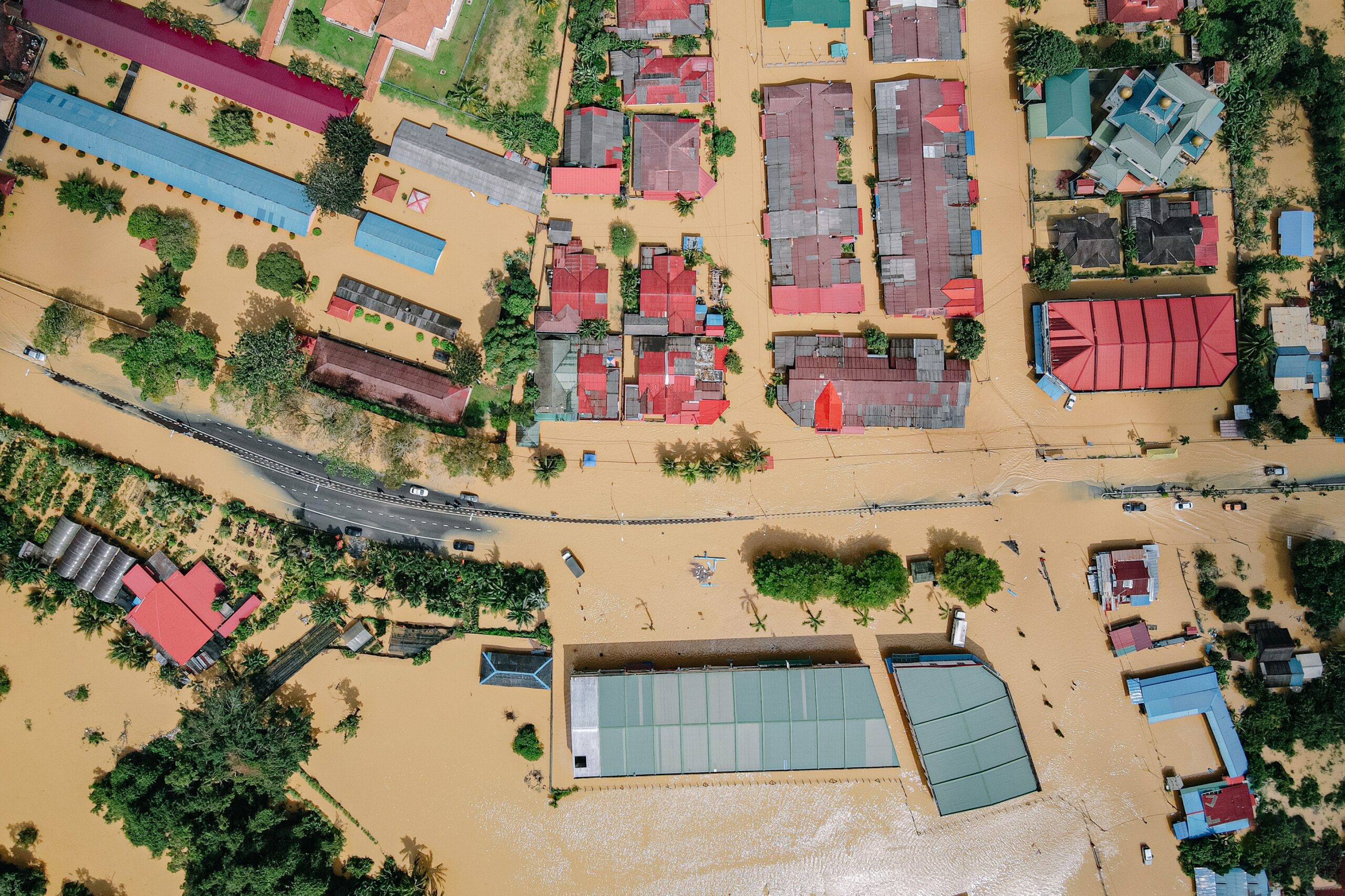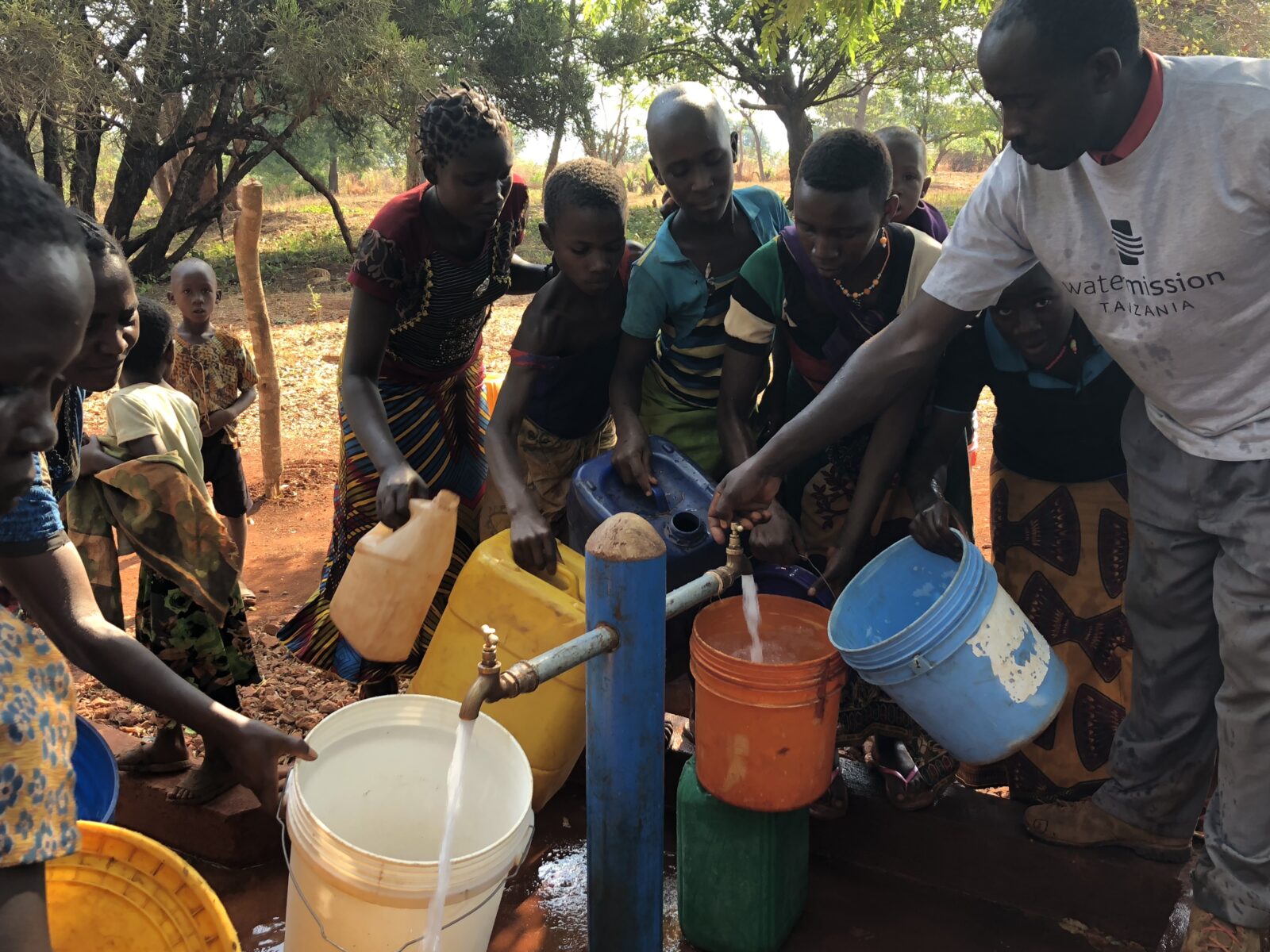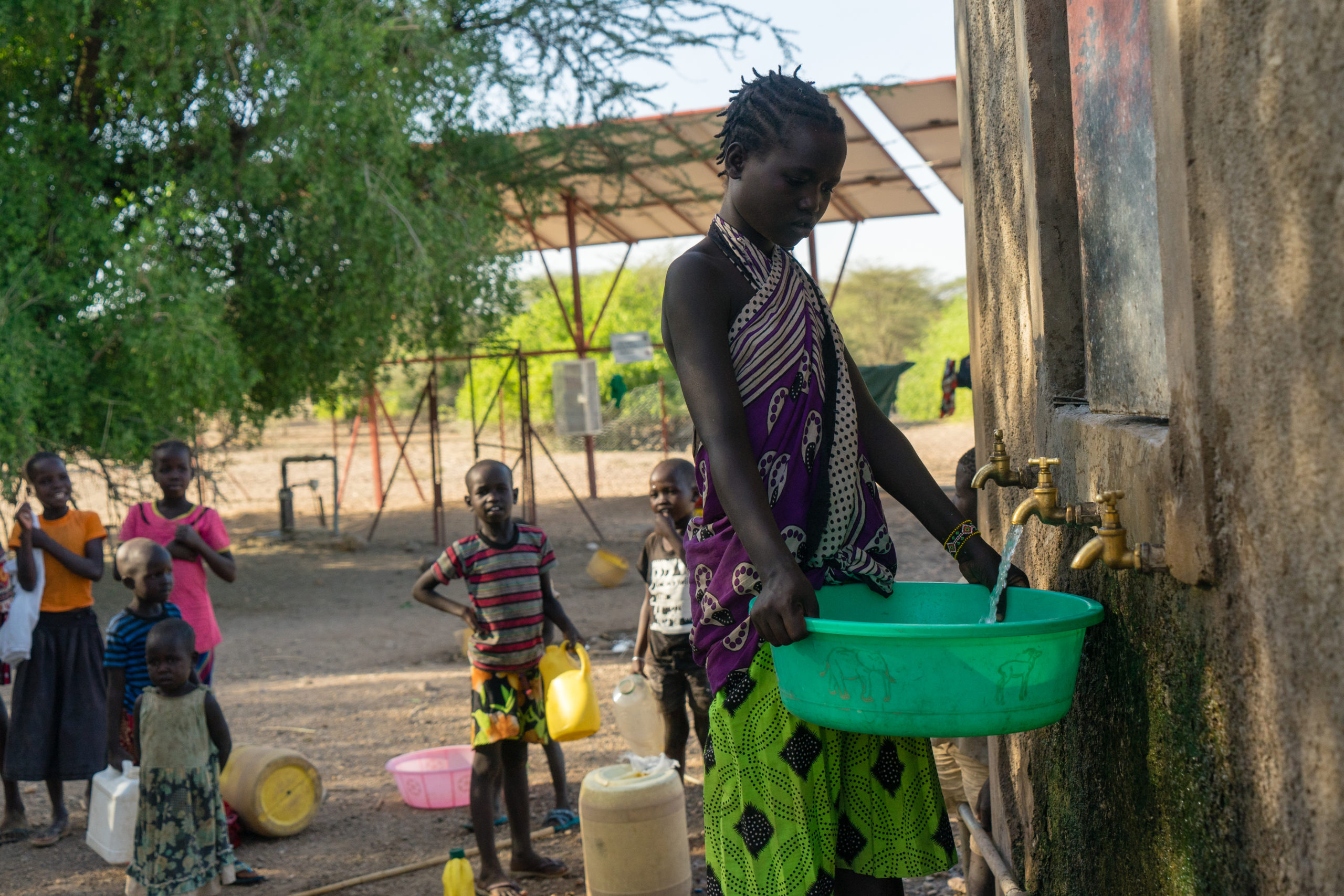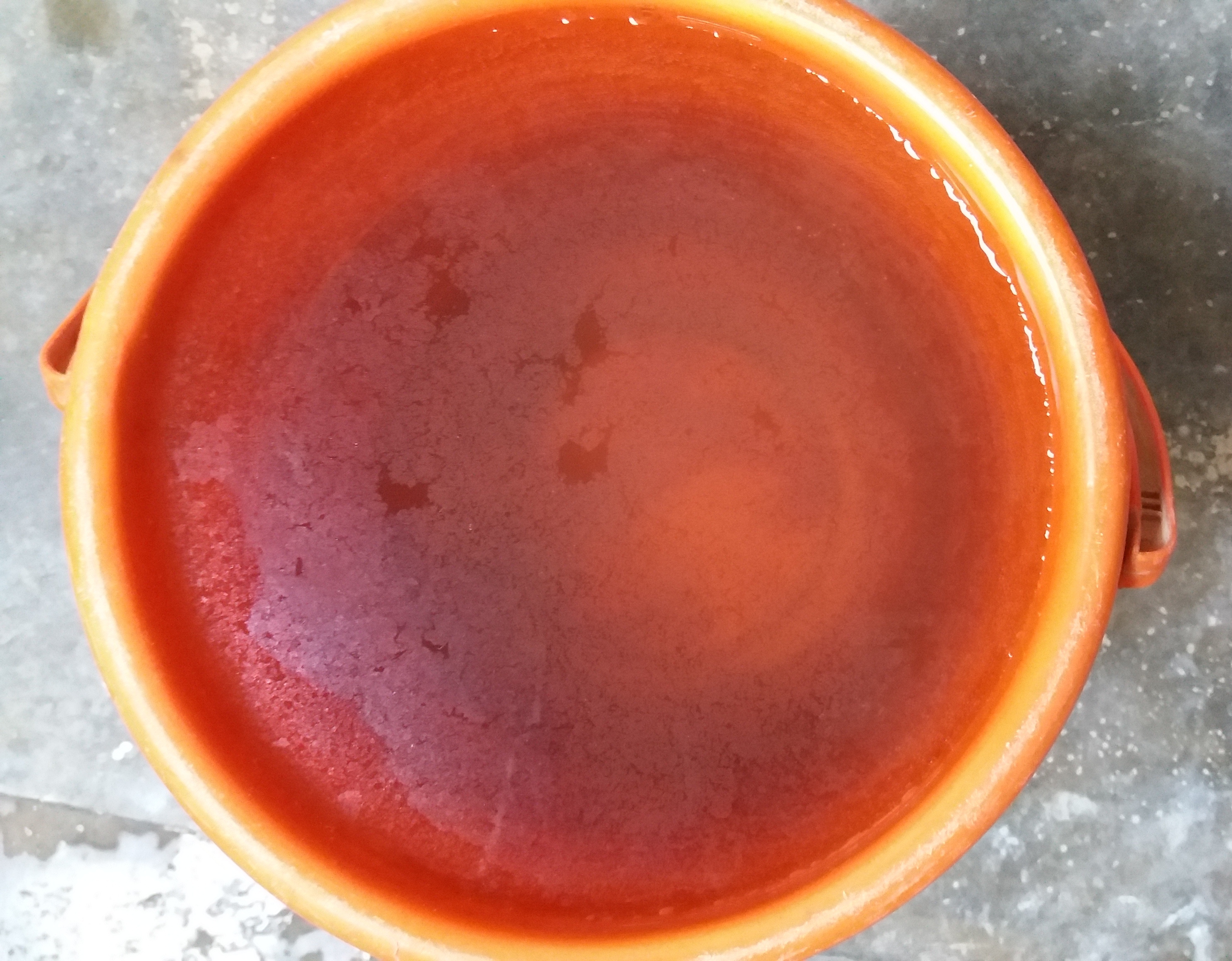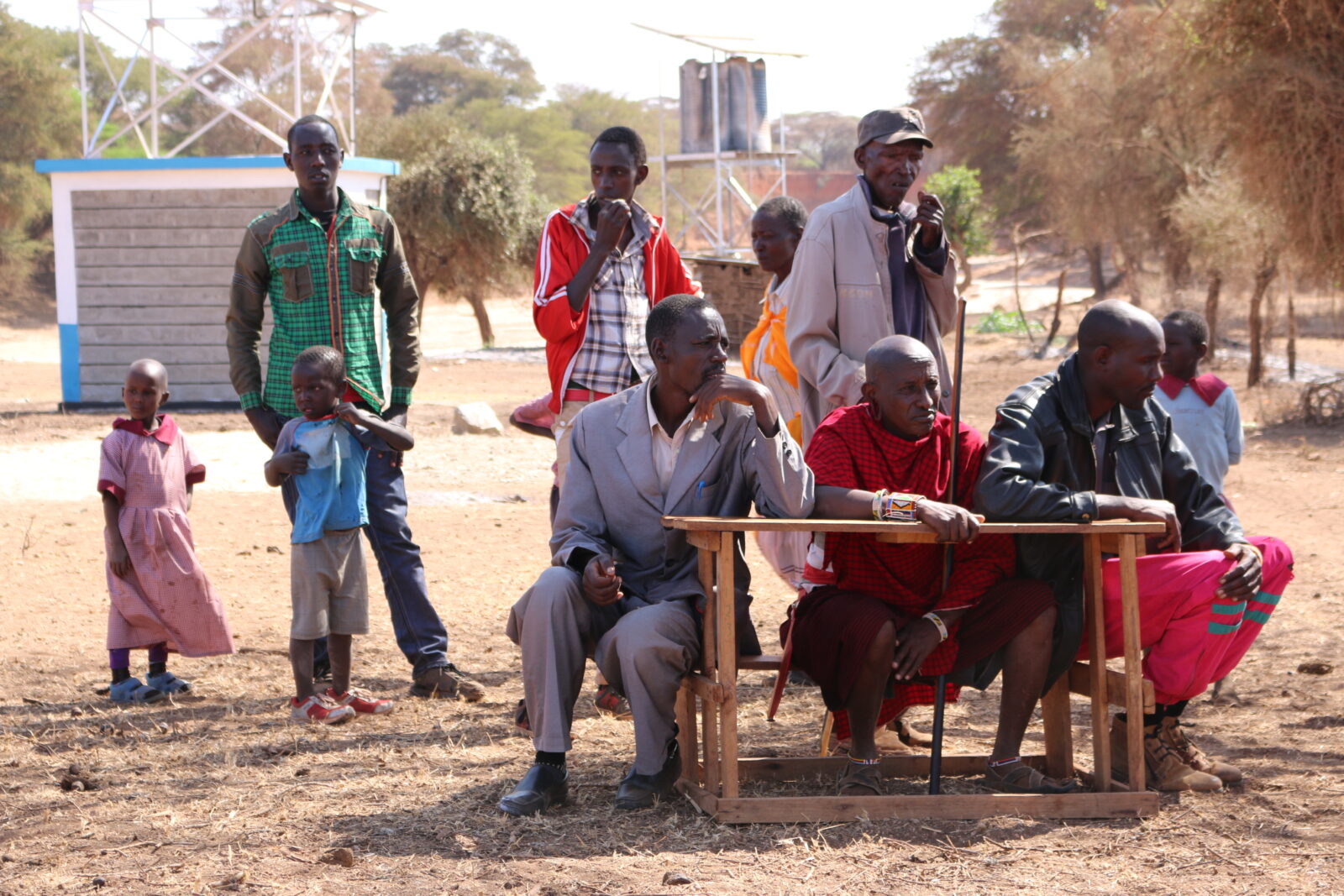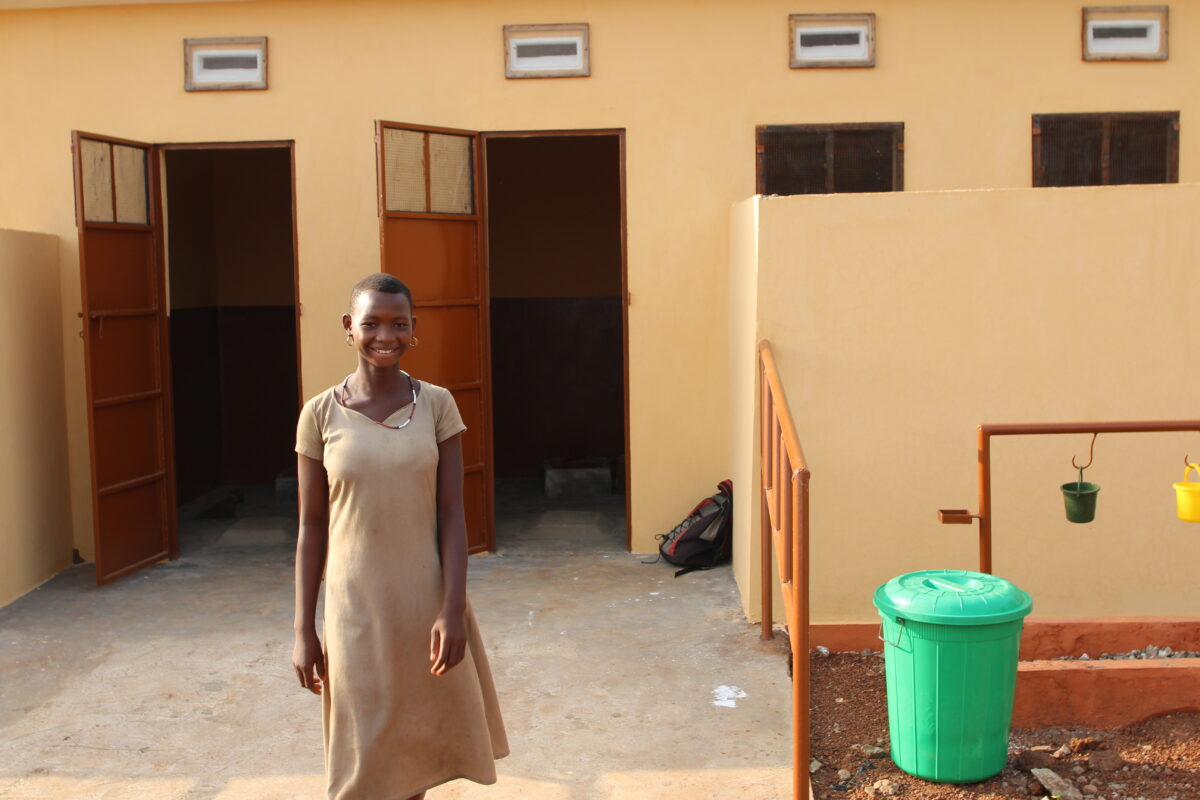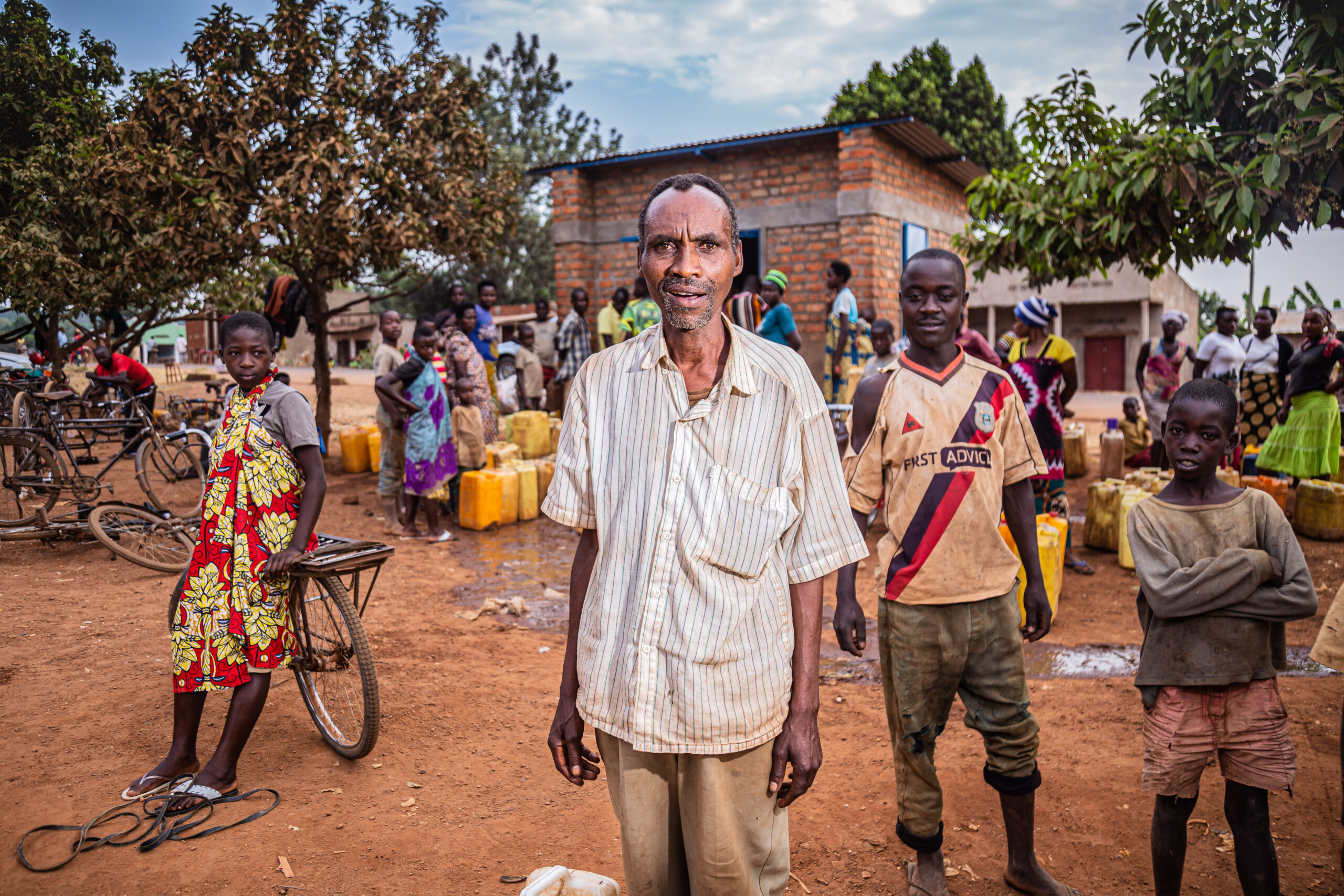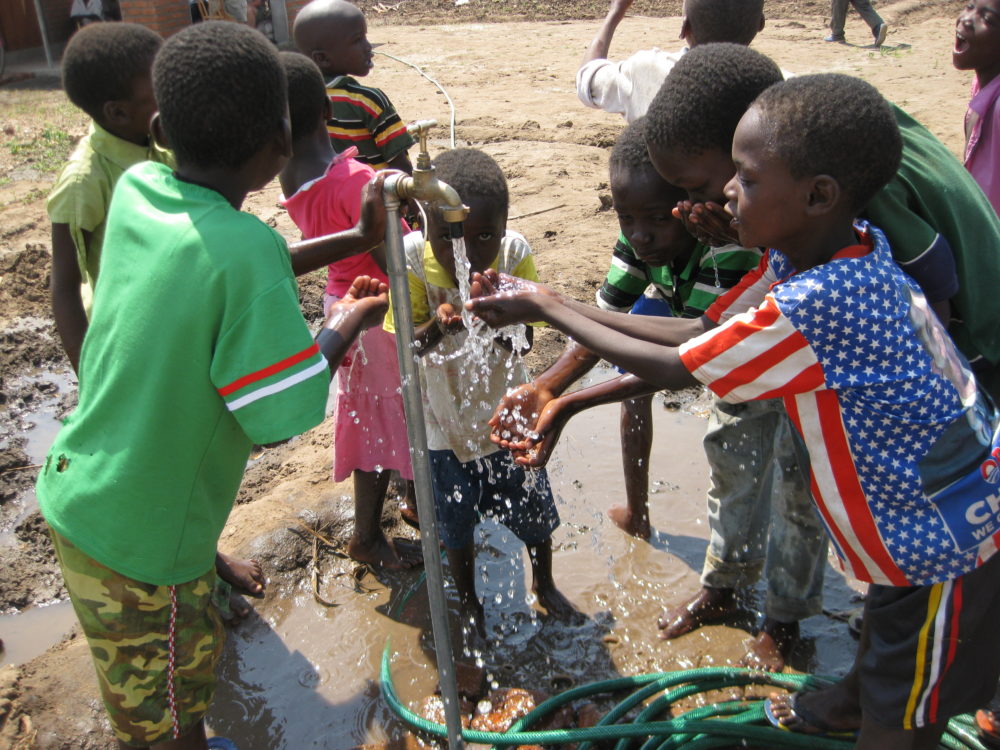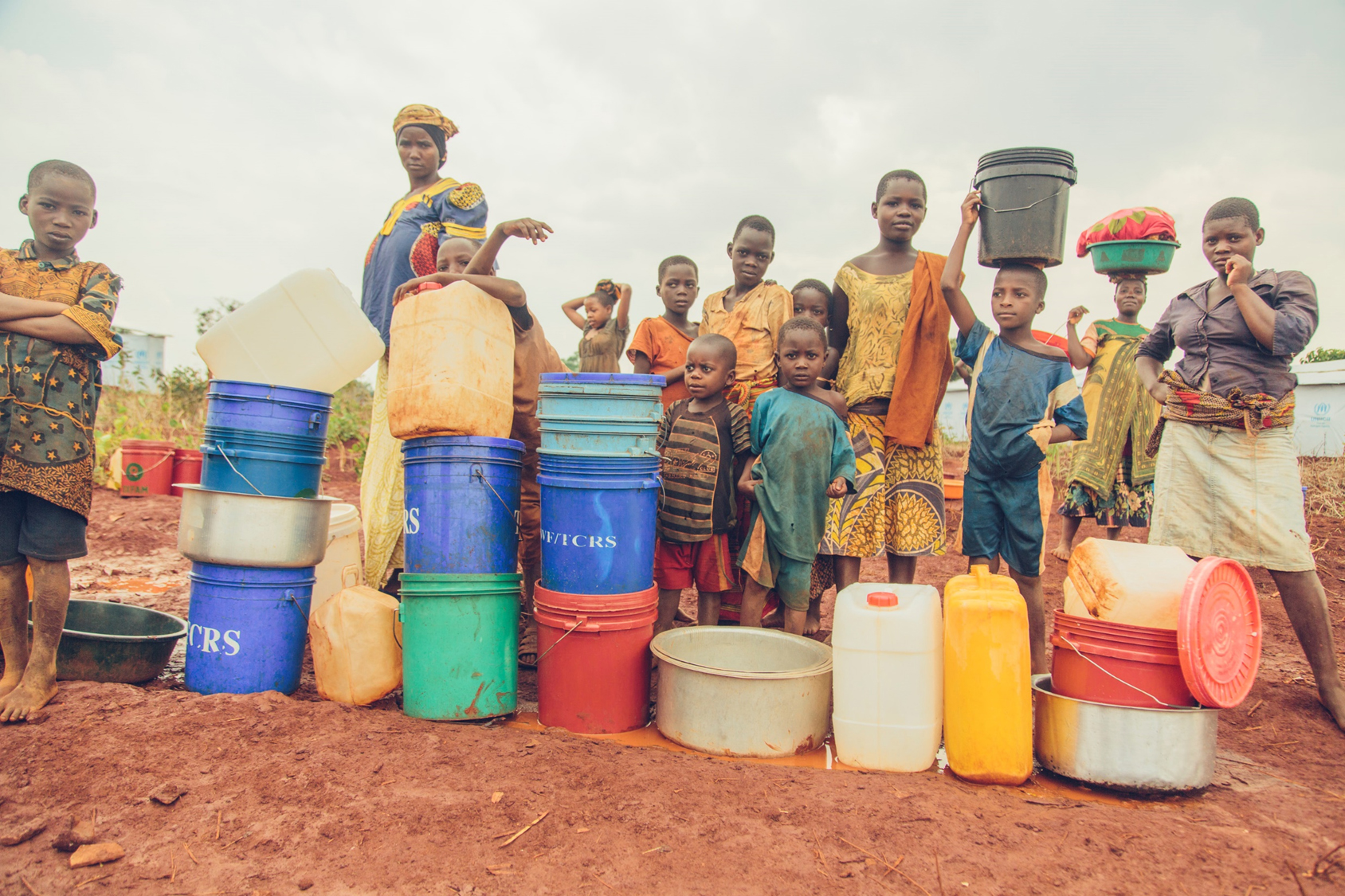In September 2011, Waha Mitra (Water Mission Indonesia) commissioned the first of 6 community safe water projects near Pekanbaru in the Indonesian island of Sumatra. The six projects became the first phase of the Southeast Asia Clean Water Initiative. Still today, Waha Mitra and the Poul Due Jensen Foundation work together to provide safe potable water for last-mile communities in the vast country.
The Foundation’s initial 2010 grant (4M DKK) covered three phases:
- Phase I: 6 communities in Pekanbaru, Sumatra, Indonesia
- Phase II: 13 communities in Sulawesi, North Sumatra and Lampung, Indonesia
- Phase III: 5 communities in Cambodia
In 2013, the Foundation committed another 4.5M DKK to build 24 community water systems:
- Phase IV: 20 communities in Indonesia
- Phase V: 4 communities in Cambodia
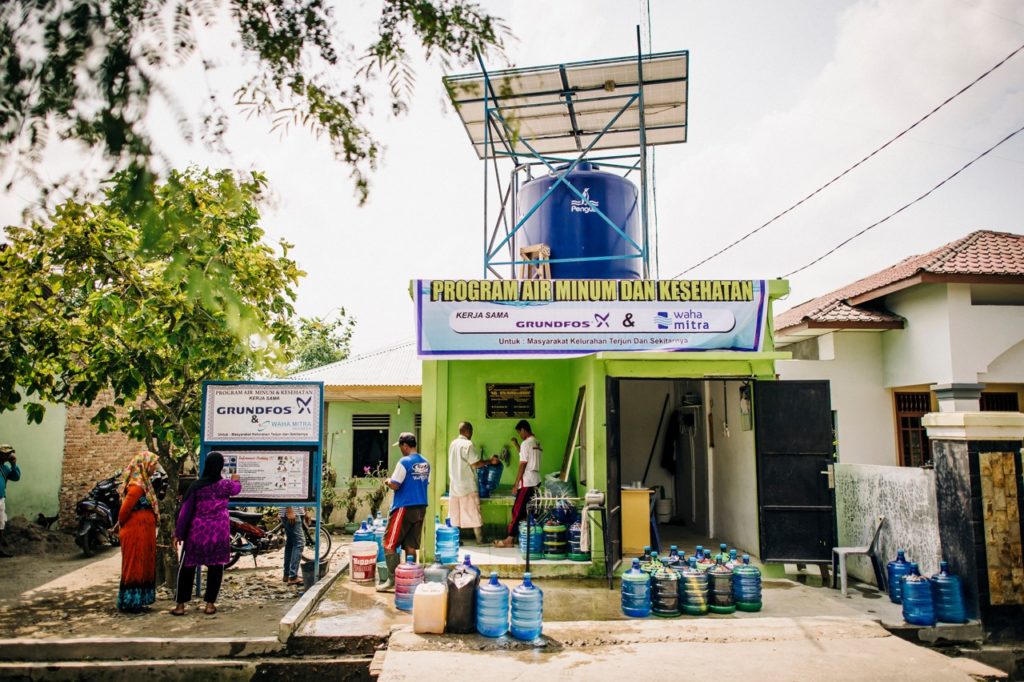
Terjun community lies at a very poor location next to a landfill where all the garbage from Medan (~5M people) is deposited. Photo: Water Mission
So far, the South East Asia Clean Water Initiative has been a successful implementation of scalable, sustainable, safe water projects. The programme has provided access to safe water to over 300,000 people and also contributed significantly to learning which has impacted the way we work to reach last-mile communities.
Videos from the Foundation’s visits
Next steps
In 2017, the Poul Due Jensen Foundation committed USD 770,000 to reach even more remote communities in North Sumatra. Building on the success of the past is the natural next step. With a team of experienced and highly trained professional staff already in place in Indonesia, Waha Mitra is strategically positioned to implement projects in some of the most rural areas of Indonesia in and effective manner as we continue to refine our approach.
- From 2018-2020, we hope to provide 15-20,000 Indonesians in 9-11 communities with sustainable access to safe water
The work will incorporate Waha Mitra’s community development best practices for safe water that were developed during the previous SE Asia Clean Water Initiatives. Each project will follow Waha Mitra’s community managed implementation model, focusing on community development (community mobilization, health & hygiene education, and sustainability training) and include long-term monitoring and support.
Terima kasih Kami untuk @PDJF_dk & @water_mission. Akhirnya masyarakat terutama anak-anak di desa Sibongkare, Papande, dan Siantar Naipospos sudah mendapatkan akses air sehat di daerah mereka, Semoga semakin banyak daerah yang dapat dibantu di waktu selanjutnya #waterbuilds pic.twitter.com/2GPNy9dDez
— Waha Mitra Indonesia (@waha_mitra) 26 February 2019
Last-mile community: Torhonas
The regions of North Sumatra and Timor have some of the highest percentages of people living in extreme poverty in Indonesia. The Human Development Index reports Indonesia as having 38.7% of the population as working poor (Income = $3.10/day). Many of the rural communities rely on subsistence living and must collect water by hand either from a shallow hand-dug well or an open water source, both of which have poor water quality. This was the case in Torhonas, where 350 families (1760 people) live in an isolated, hilly area. Prior to the water project, people were walking downhill 400 meters and then carrying water uphill back to the community. And the water was not safe. Today, the community has access to safe water in the village
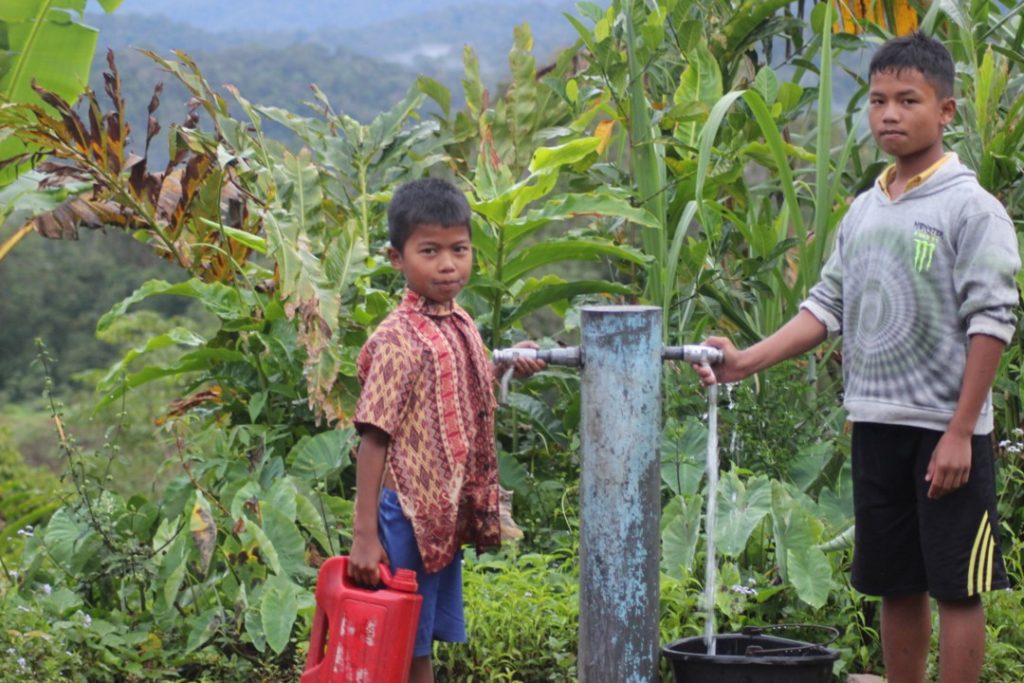
Before going to school, these boys used to walk 400m downhill to fetch water – and the only water available was contaminated. Photo: Water Mission
Getting to the community wasn’t easy: For instance, no supplier was willing to deliver equipment into Torhonas. Waha Mitra had to do it themselves, and it took 24 trips on winding, muddy mountain roads to get all of the tanks, pipes and other equipment into the community. Each trip was only 18 kilometers (11 miles) but it took 3-5 hours to drive it.


